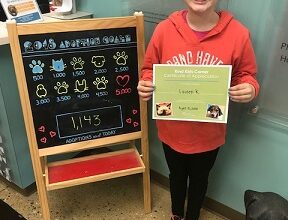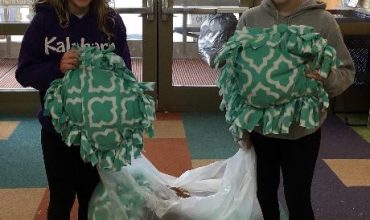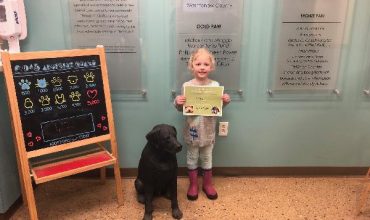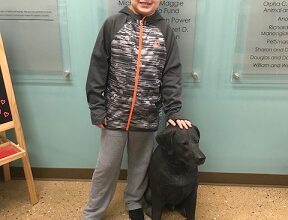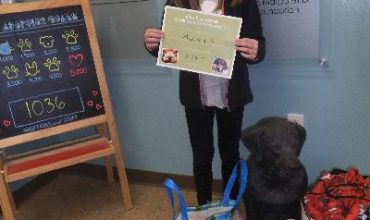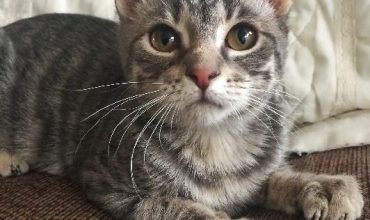Lauren and her family adopted their puppy from HSHV, but Lauren wanted to do even more to help out the homeless animals of her community. She held a bake sale and donated the money to the continued care of all the animals still looking for their forever homes. Thank you so much Lauren for your awesome donation!
Read More
Posts by Wendy Welch
Dakota & Chelsea: Recycling for animals
Dakota and Chelsea collected bottles and used the money to donate much needed items to HSHV! They were able to help homeless animals and promote recycling at the same time, which is a win for everyone. Thank you, Dakota and Chelsea, for your generous donation!
Read More
Elsa: Pawsitively great donations
Elsa and her family are regular visitors at HSHV. They love to stop by and see the cats and dogs available for adoption. For Elsa’s 6th birthday she wanted to give back to all of the animals so she collected pet food, toys and gift cards in lieu of gifts. Thank you so much Elsa for your wonderful donation!
Read More
Lucas: Entrepreneur for animals
Lucas likes animals, and he wanted to do something to help the animals of HSHV. He was able to sell gum at his school in order to raise funds to donate. Thank you so much Lucas for your entrepreneurial spirit; the animals of HSHV really appreciate your hard work!
Read More
Madison: Pass it forward
Madison’s birthday falls right after Christmas; instead of getting more gifts, she wanted to donate much needed items to HSHV. The animal food, blankets and other items Madison was able to collect will go toward the care of homeless animals in our community! Thank you so much Madison for your generosity!
Read More
A Cautious Kitten
We picked Tucker (formerly Sam) up yesterday. We were given a two-page handout on suggestions to help us integrate our new “cautious” family member to our home. Tucker escaped his “safe” starting zone in about 10 minutes. Within an hour, he had smelled around the entire house, and had his first meal and plenty of water. He has been at home since. We cannot thank HSHV enough for bringing little Tucker into our lives. Sam now Tucker
Read More
Meant to Be
Reptar now Jack I recently lost my best friend of 13.5 years, and I was devastated. I knew I had a lot of love to give and wanted to find the “right” dog to love on. Not a replacement but a new best friend. My dad and I decided to browse the kennels at HSHV on a very busy Saturday. We walked through once, and I found out the one dog I was interested in already had two holds on him. My dad suggested going for one more lap. Partway through, I noticed a door leading outside and we decided
Read More
Happy puppy, happy home!
Skylar (formerly Iguanadon) was a Love Train puppy. She is enjoying her cat brother, and he seems to enjoy her, too! She is having so much fun getting socialized with her dog aunts and cousins! It’s easy to tell she’s a very happy puppy! Iguanadon now Skylar
Read More
A Bunny Tale
My fiancé and I adopted Posie on New Year’s Eve two years ago. I noticed her in the ‘Adoptable Animals’ and saw that she was not adopted month after month. We went in to visit her, and were told that people were afraid to handle her. Her nickname was the Tiny Terror! She weighs a pound and a half but drew blood regularly. She let me stroke her tiny nose and that’s when I knew I was in love. We brought her home the same day. Now her demeanor has totally changed. She is the sweetest little cuddlebug! She loves
Read More
Strong Sister
The entire Lemmink family wants to thank HSHV for helping save Primrose’s (Fleek) life. She came in on the 1/26/18 Love Train. She became ill and with the help of HSHV she fully recovered and is loving being a “little sister”. Prim is doing great and Jack (Napoleon HSHV rescue) loves her! Primrose now Fleek
Read More




